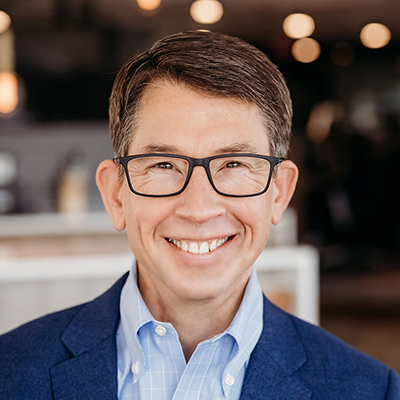| Kicking off the Association’s newly rebranded Employment and Labor Group (formerly Future Workplace Policy Council) meeting, Chair Christy Pambianchi underscored the importance of understanding the latest policy developments, sharing insights and practices, and planning a path of action. The full meeting agenda is here. | 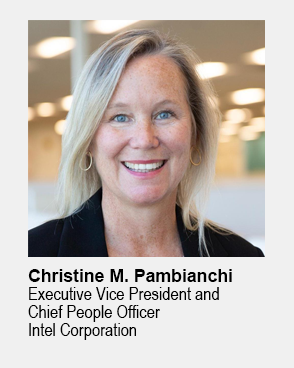
|
All of Government, Good Jobs Initiatives explored. During a pair of panels led by Chatrane Birbal, Rajesh Nayak explained the Biden administration’s “All of Government” approach, while Lafe Solomon discussed the administration’s “Good Jobs Initiative” tying federal grants for companies to labor and employment requirements.
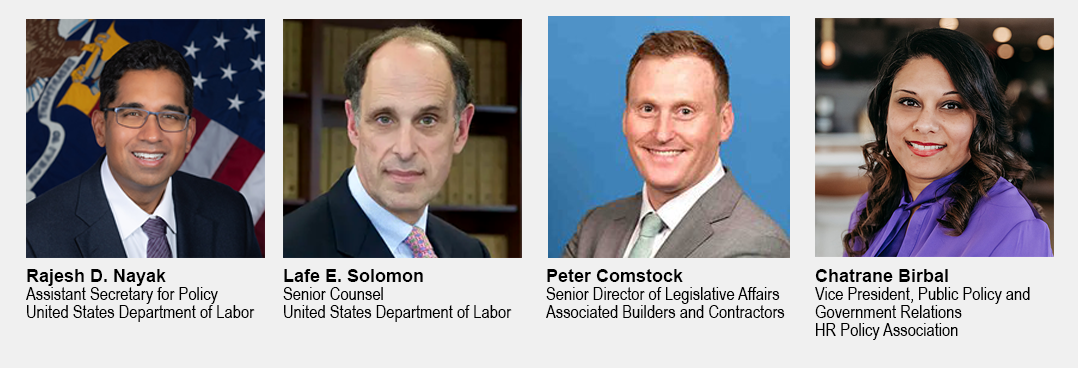
- The “All of Government” approach is focused on making the federal government a model actor for labor and employment compliance; providing information and transparency to workers who want to organize a union, as well as employers; and using the government’s spending power to support union organizing.
- Under the Good Jobs Initiative, the Labor Department serves as a technical advisor to agencies distributing grant money from the CHIPs Act, the infrastructure bill, and other laws with substantial grants. It involves “jobs principles” – aspirational elements that the administration wants employers to provide. For example, the broadband grants require certification with labor laws.
Labor and employment during unsettled times. An employer panel featuring Caterpillar, NextEra Energy, Boeing, and Sutter Health, led by HR Policy’s Dan Yager, focused on the union organizing environment and cross-disciplinary partnerships.

- Panelists noted key changes including the evolution from principles to supply chain due diligence enforcement, the different attitude toward work and unions among generations, a general distrust for large organizations as societal discord expands, the importance of providing a holistic value proposition, and the impact of the talent shortage.
- The need for factual and effective new methods of communication is paramount, including the use of websites during negotiations and social media.
- Advice going forward: Change is more rapid than ever, and companies need to be flexible, engage effectively, and sharpen change management and manager skills.
Congressional panel probes House-Senate dichotomy on AI, ESG. Cyrus Artz, Skylar Borchardt, and Tim Ryder explored key AI and ESG legislation.
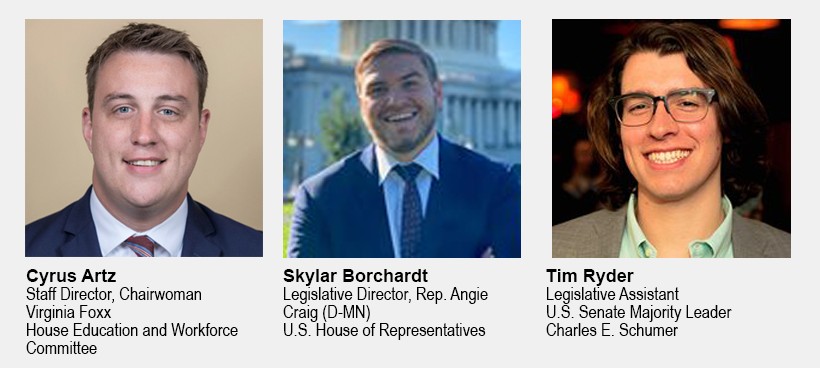
- The Senate approach to AI has involved a series of closed-door bipartisan education sessions and “insight forums.” These meetings allowed Senators to hear from a diverse slate of leading thinkers on AI. Many experts want legislation developed to help mitigate AI risks, but the process will take time. The House will move more carefully while recognizing the speed with which technology is developing.
- On ESG, the House Education and the Workforce Committee is deeply concerned about the potential insertion of ESG standards into retirement savings decisions and is conducting oversight based on its jurisdiction over ERISA.
Panel explores the legal, practical impacts of major NLRB decisions. A panel of experts, led by HR Policy’s Greg Hoff, explored the impact of recent pathbreaking NLRB decisions.

Some highlights include:
- The Honorable John Ring described recent NLRB decisions, and the philosophy that underpins them as “a complete sea change.” Panelists agreed that senior leadership needs effective education following the Cemex decision, under which an unfair labor practice charge against an employer during an organizing drive can lead to union recognition without a secret ballot election.
- Regarding the recent decision holding that many employer workplace rules can infringe on protected concerted activity, Holly Rich noted that despite the unprecedented breadth of the decision, it does provide for a reexamination of workplace policies and an opportunity to update those that are outdated.
- Tammy Rattray recommended that employers track employee discipline for offensive language in their case management systems so they can demonstrate consistent application.
- In conclusion, Phil Wilson suggested that the best thing employers could do is become a great place to work and minimize the chance of triggering an unfair labor practice.
DEI discussion explores legal landscape, practical advice. Led by David Fortney, a panel of company experts and former EEOC Commissioners explored the legal and compliance landscape three months after the Harvard decision.
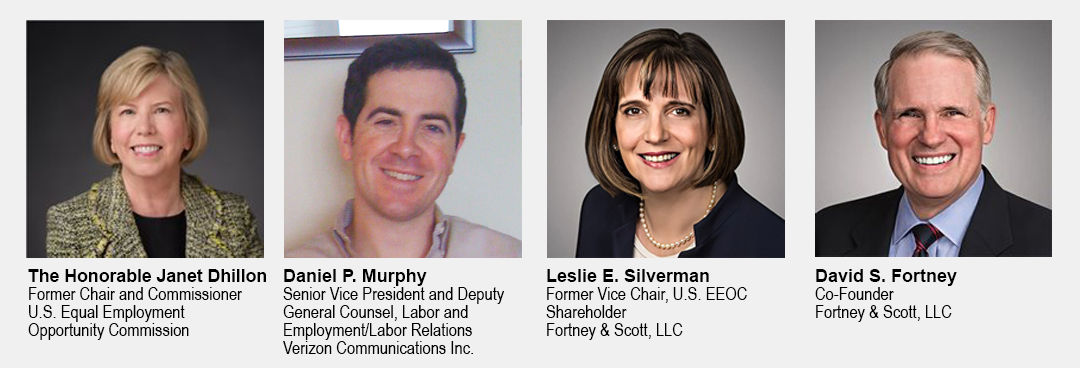
- The Honorable Janet Dhillon noted that following the Harvard decision three EEOC Commissioners provided three different views on permissible corporate diversity approaches. She also noted that there has been an uptick in requests for “Commissioner Charges,” which is an EEOC-Commissioner-launched investigation, and companies need to take those seriously.
- Leslie Silverman discussed the challenges brought by the American Alliance for Civil Rights to law firm clerkships open to students of certain races or ethnicities, which led to substantial changes in those programs.
- Dan Murphy discussed recent shareholder derivative suits implicating DEI, noting that those that have been dismissed so far have been on procedural grounds, not on the grounds of Title VII or (for suppliers) Section 1981.
The panel concluded by recommending that companies need to carefully monitor the legal landscape and that they must keep leadership educated about needed changes to avoid undermining credibility with employees and stakeholders.
